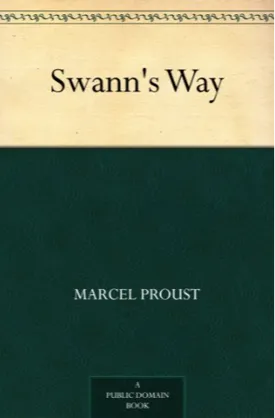Marcel Proust
Marcel Proust, born on 10th July 1871 in Auteuil, Paris, was a French novelist best known for his work ‘In Search of Lost Time’.
Proust, who trained in law, was a troubled individual. Throughout a majority of his life, he suffered poor health, was plagued by depression, and spent a lot of time living in isolation and contemplating the meaning of life. However, Proust achieved great milestones with his writing. He was known for his lengthy sentences and reflections as his life and his works were entwined. In his writing, he tried to bring forth a deep understanding of human nature and feelings of love, loyalty and sadness.
Proust’s early works ‘Les Plaisirs et Les Jours’ (1896) and ‘Contre Saint-Beuve’ (1908) did not bring him any success until his most famous work ‘In Search Of Lost Time’. This book was an instant hit. It is considered to be one of the most influential books of the twentieth century and has been seen as a major breakthrough in modernist literature. The novel is an autobiographical work and is said to have been highly influenced by the events and memories of Proust’s own life. It consists of seven individual volumes, which were published separately throughout Proust’s life and were then put together in 1922, after his death.
The first volume, ‘Swann’s Way’, is Proust’s most popular work. Its narrative arc follows the life of a narrator, whose identity is subject to speculation, and his relationships with people in society. It focuses upon the struggle between love, jealousy and vanity and is a truly immersive experience. Proust’s words and descriptions are so vivid and intricate, that the reader can feel the narrator’s heartache and confusion. The second volume ‘In the Shadow of Young Girls in Flower’, follows the narrator as he attempts to untangle his feelings for the women in his life.
The third volume of ‘In Search of Lost Time’ is known as ‘The Guermantes Way’ and is the longest volume of the work. It shifts the focus away from the narrator’s life and focuses more on the story of the Guermantes family and their high society life. Here Proust introduces some of his most insightful insights into human nature as he talks about the codes of high society and its empty artifice. The fourth volume ‘Sodom and Gomorrah’ , is a shorter book compared to the other volumes and is focused on the narrator pursuing a life of debauchery and his exploration of pleasure, seeking gratification in the wrong places.
The fifth volume ‘The Prisoner’, is the most personal to Proust himself as it deals with his feelings of imprisonment, both literally and metaphorically, and his experience of writer’s block. Despite its darker tones, it still manages to include some of Proust’s most beautiful and romantic words as he muses upon his life and his yearning for love. The sixth volume ‘The Fugitive’ and the seventh volume ‘Time Regained’, conclude the story of the narrator as he finally finds a way out of his prison and discovers a way to happiness.
Proust’s work has been described as ‘sensuous and romantic in spirit’ and the great and insightful themes explored throughout his novels still remain relevant today. Proust was a man of immense talent, who tried to express and share his immense understanding of life and its struggles with the world. His works are truly unique and unforgettable and will continue to be admired for years to come.

